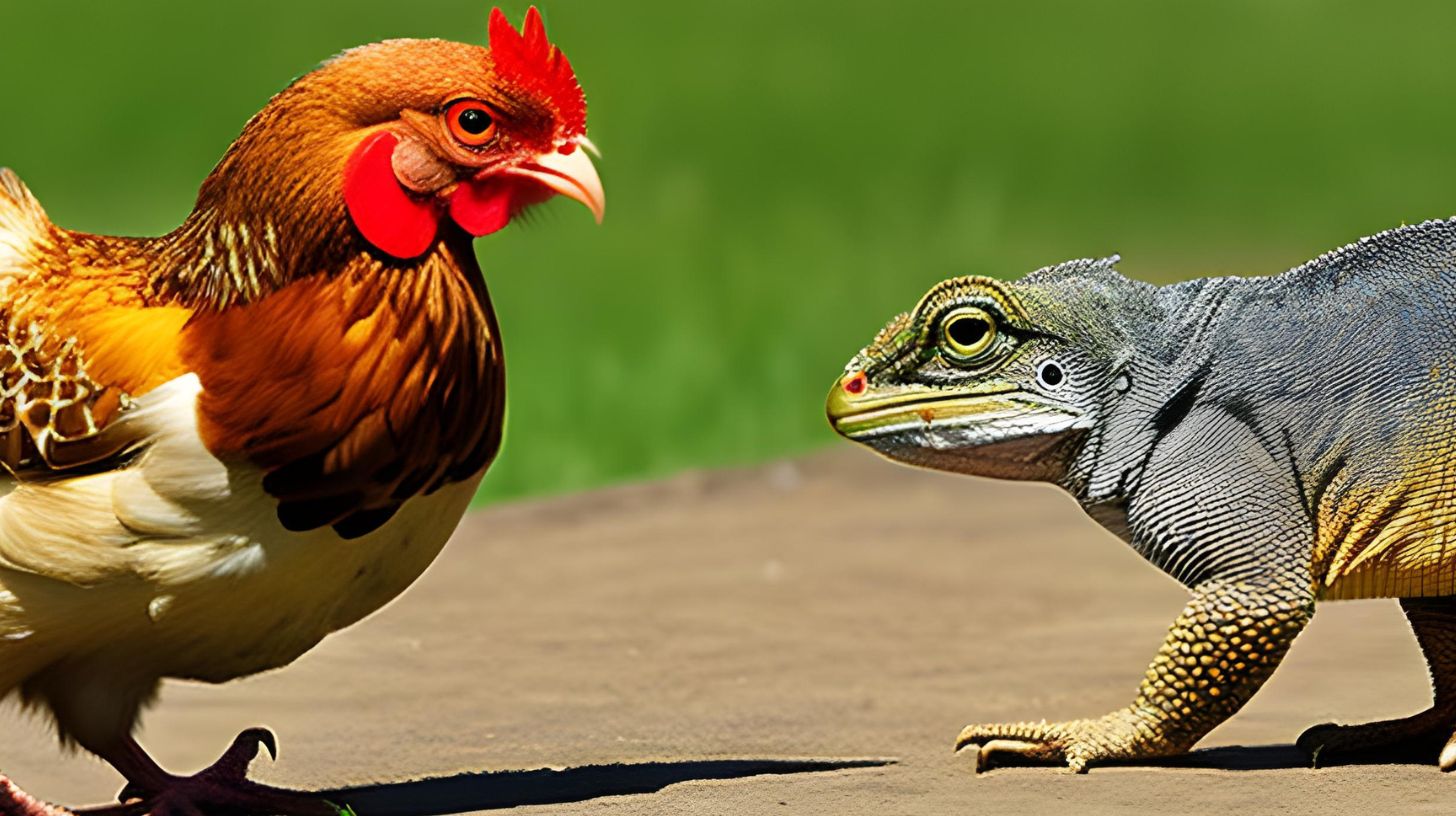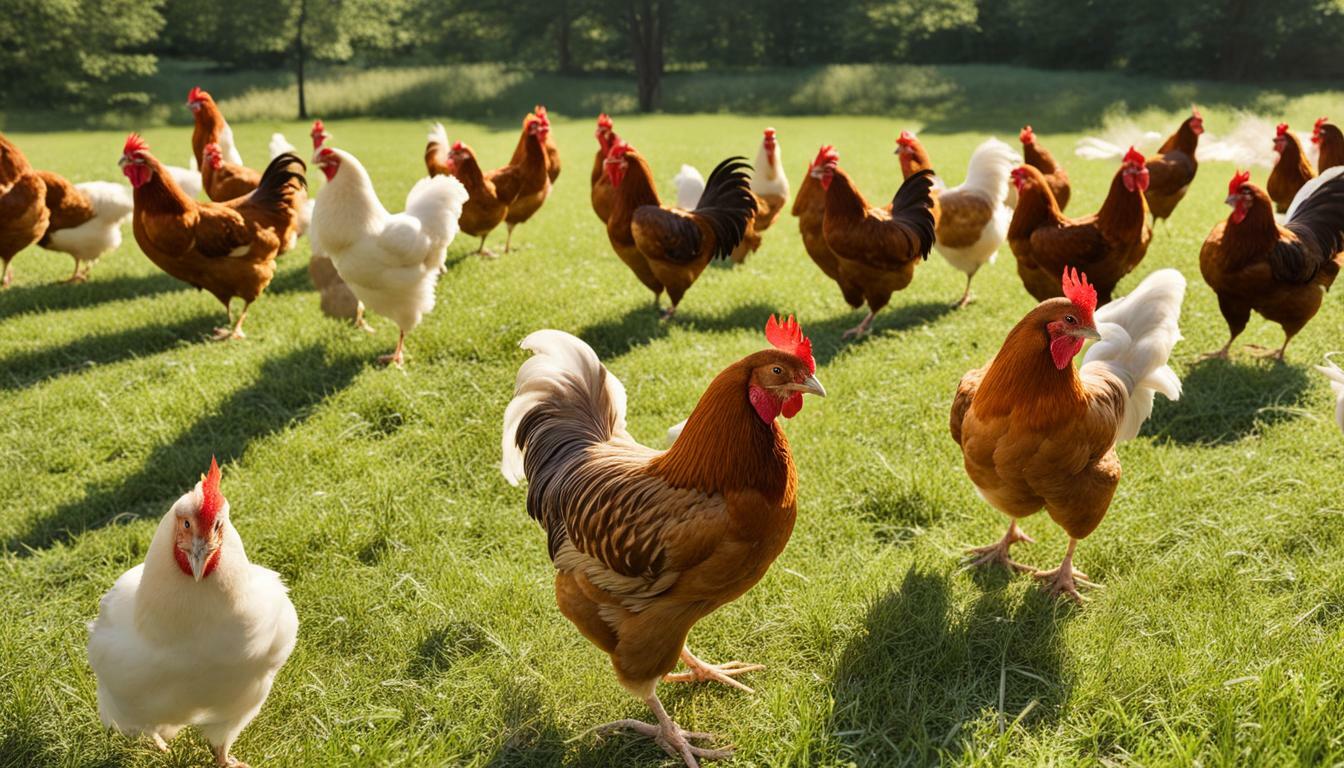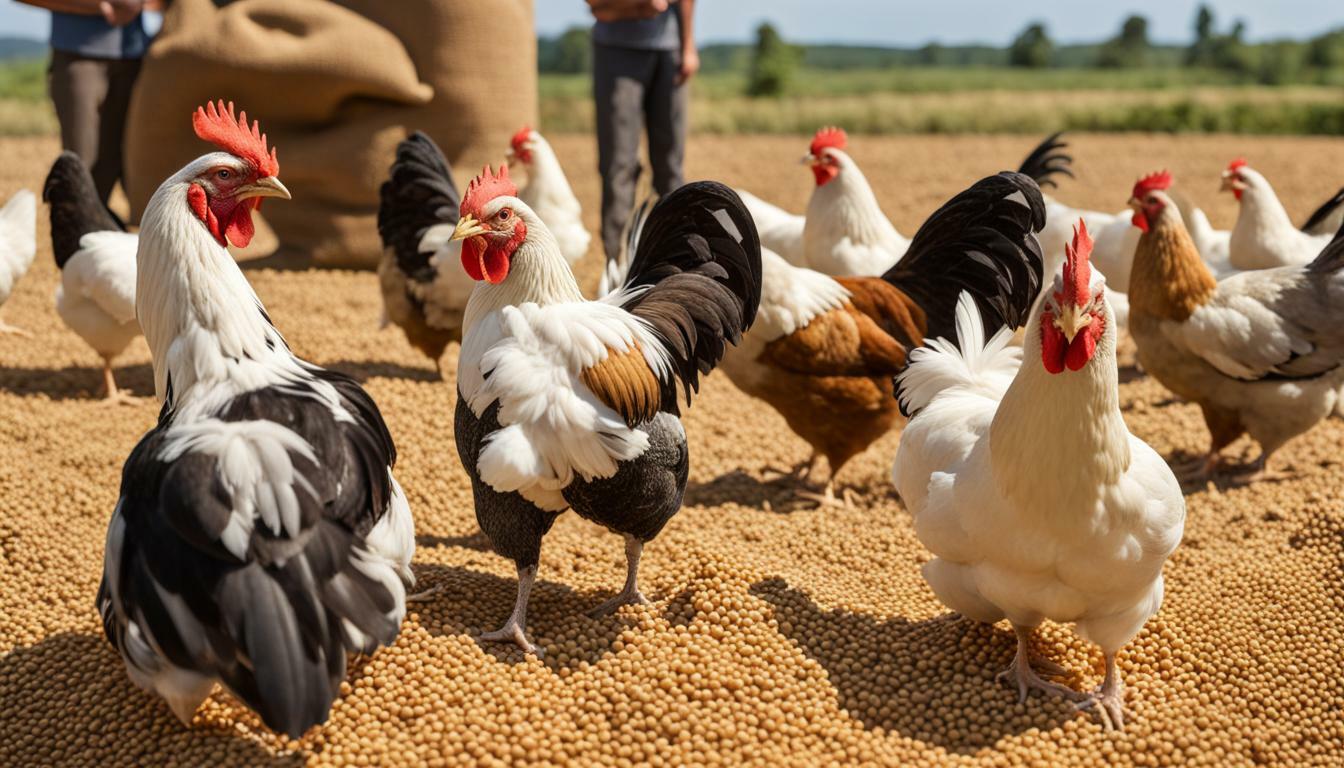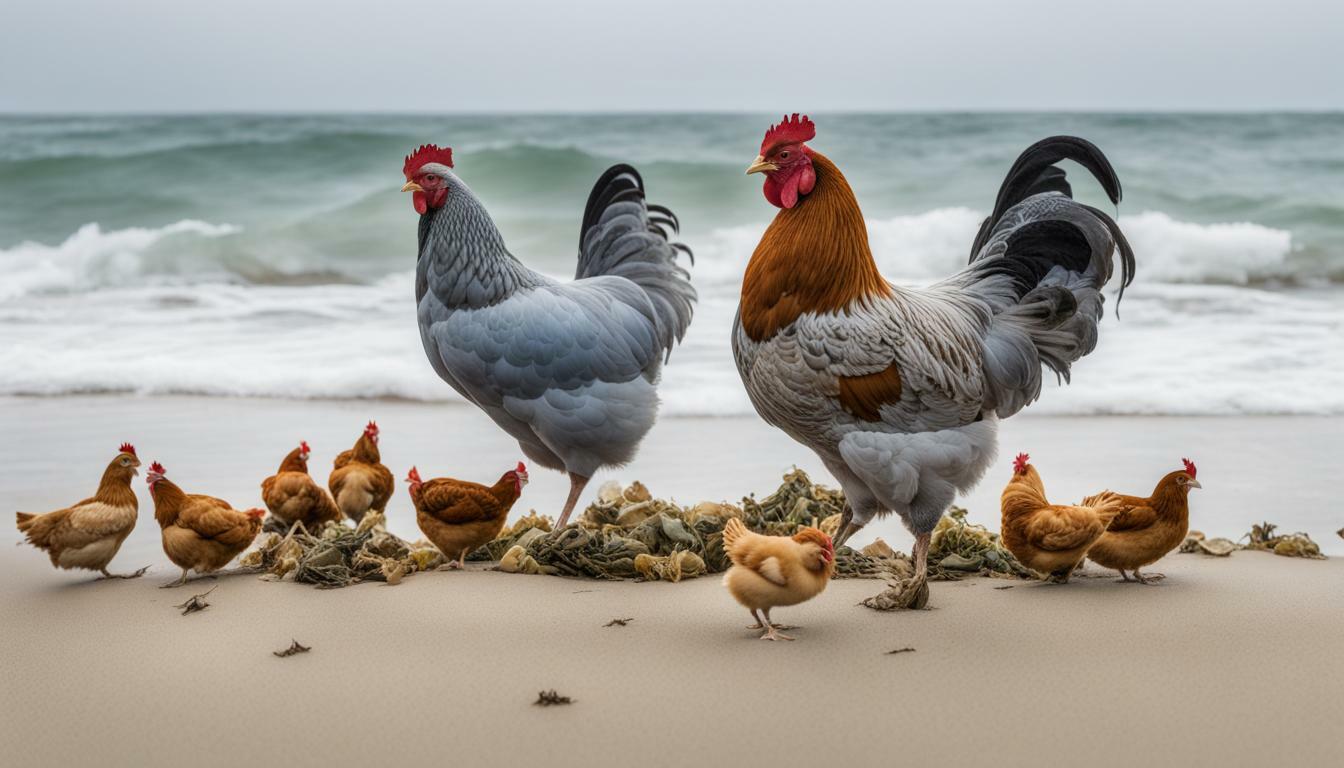Do Chickens Eat Lizards? Discover the Answer Here!

Table of content:
- Can Chickens Hunt and Catch Lizards?
- Do Backyard Chickens Eat Lizards?
- What Types of Lizards Do Chickens Eat?
- Do Chickens Specifically Hunt Lizards?
- Do Hens Specifically Eat Lizards?
- Do Chickens Eat Small Lizards?
- Will Chickens Eat Lizards and Frogs?
- Can I Feed Lizards to My Chickens?
- Do Geckos Make Good Feeder Lizards?
- Are Lizards Bad for Chickens?
- Do Chickens Eat Skinks?
- Do Chickens Eat Anoles?
- Final Thoughts
Chickens are omnivorous birds that will eat both plant and animal matter. Their typical diet consists of grains, seeds, fruits, vegetables, and insects. However, chickens are always on the lookout for protein-rich sources to supplement their diet. This leads many backyard chicken owners to wonder – do chickens eat lizards?
Can Chickens Hunt and Catch Lizards?
Chickens are skilled foragers and hunters despite their reputation as docile barnyard birds. When allowed to roam freely, chickens will scour the ground looking for any insects, worms, or small animals they can capture and eat. Lizards, such as skinks and small geckos, make perfect prey for opportunistic chickens.
Chickens use their strong beaks and sharp talons to catch lizards basking in the sun or hunting for insects. The chickens quickly kill and swallow the lizard whole, providing them with a good source of protein. Chickens have quick reflexes and are smarter than many people realize. This gives them an advantage when hunting fast-moving lizards in the yard.
So in short, yes chickens can and will hunt, catch, and eat small lizards they find roaming in their environment. Their predatory abilities should not be underestimated.
Do Backyard Chickens Eat Lizards?
Backyard chicken flocks allowed to free range are very likely to eat any lizards they can capture. Backyard chickens have more opportunities to hunt living prey than commercial hens kept confined in coops and runs. Access to the open yard allows backyard chickens to display their natural hunting behaviors.
Small fence lizards, swift skinks, geckos, and anoles all make for tempting treats for free-ranging backyard chickens. The lizards provide a good source of protein and amino acids to supplement the standard chicken feed. Eating live lizards helps backyard chickens develop and maintain strong muscles, healthy eggs, and active immune systems.
So backyard chicken flocks are very likely to eat small lizards whenever they can catch them. The protein boost benefits the chickens and helps control the yard lizard population naturally.
What Types of Lizards Do Chickens Eat?
Chickens are not particularly picky when it comes to eating lizards. They will consume any small lizards they can overpower and swallow whole. Some of the most common lizards chickens prey on include:
- Fence lizards – Small, quick lizards found throughout the Southern, Western, and Midwestern United States.
- Skinks – Smooth, shiny lizards in a variety of colors and patterns.
- Anoles – Often bright green lizards with throat fans native to the Southeastern US.
- Geckos – Nocturnal lizards with suction cup toes found worldwide.
- Swifts – Tan or brown lizards without legs found in the Southwest US.
- Night lizards – Large-eyed lizards active at dusk in California and Nevada.
As long as the lizard is relatively small, typically 6 inches or less, a foraging chicken will not hesitate to chase it down and consume it. Larger lizards like iguanas or monitor lizards are likely safe from chickens. But smaller lizards make the perfect on-the-go snack for a hungry hen.
Do Chickens Specifically Hunt Lizards?
Chickens are omnivorous opportunistic eaters. They forage for plants and insects as their primary food sources. However, chickens will readily hunt, kill, and eat lizards that cross their path while free-ranging. The movement and bright colors of the lizards trigger the chicken’s predatory instincts.
So while chickens do not specifically target lizards like a predatory animal hunting its primary food source, they certainly recognize lizards as a tasty treat. Given the opportunity, chickens will enthusiastically hunt down any appropriately sized lizards in their environment.
The protein offered by lizards is supplemental nutrition on top of their grain-based diet. Chickens have retained their ancestral instincts to chase and catch living prey. So lizards make the perfect additional food source during a chicken’s daily foraging activities.
Do Hens Specifically Eat Lizards?
Just like chickens in general, hens do not seek out lizards over other prey. However, they are just as likely as roosters to catch and consume any lizards that they encounter while free-ranging.
In fact, because hens are normally smaller than roosters, they may be even more motivated to hunt down protein-rich supplemental foods like lizards. The extra nutrients offered by lizards help breeding hens produce high-quality fertile eggs.
So while their first priority is insects, seeds, and vegetation, hens are quick to take advantage of any lizards crossing their path while foraging. Hens seem to enjoy chasing and feeling the satisfaction of catching these speedy prey to add diversity to their diet.
Do Chickens Eat Small Lizards?
Chickens are limited in the size of lizards they can successfully hunt, kill, and swallow whole. Very large lizards are typically off the menu. Small lizards approximately 3 to 6 inches long are ideal targets for foraging chickens.
Species like green anoles, fence lizards, alligator lizards, and slender glass lizards make perfect bite-sized meals for a chicken. Chickens use their strong beaks to grab and kill small lizards before gobbling them down.
Lizards any larger are difficult for a chicken to capture and consume. Very small lizards may also be ignored as they offer little substance for the effort. But those small lizards in the Goldilocks zone make great high-protein snacks chickens will readily devour.
Will Chickens Eat Lizards and Frogs?
Chickens are eager and willing to eat small vertebrates like lizards and frogs as part of their omnivorous diet. Both lizards and frogs offer beneficial nutrients to supplement the standard chicken diet.
In fact, chickens may prefer lizards and frogs over insects, as they have more muscle meat and protein per ounce. The movement triggers their predatory reaction, and chickens seem to relish the opportunity to capture and consume these quick treats.
So given the chance, chickens will readily chase down and eat any appropriately sized lizards or frogs they encounter while foraging in the yard. Both provide a valuable source of protein and amino acids chickens thrive on.
Can I Feed Lizards to My Chickens?
It is not necessary to hand feed lizards to backyard chickens under normal circumstances. Chickens are skilled hunters and will find and catch small lizards without human assistance.
However, chicken keepers can occasionally feed caught lizards as treats. This may be a good way to offer more protein to growing juvenile chickens or hens producing eggs. Only feed lizards that have been caught in your own yard, never from the wild, to prevent spreading diseases.
Always act quickly and humanely when catching lizards to feed to chickens. It is best not to leave lizards languishing in a bucket for long periods of time before feeding. Chickens will readily gobble down live or pre-killed lizards for a nutritional boost.
Do Geckos Make Good Feeder Lizards?
Small geckos can safely be fed to backyard chickens in moderation. Species like house geckos or Mediterranean house geckos are common lizards that have adapted well to living in and around human homes.
These non-native species are prolific breeders and compete with native lizards in warm environments like Florida and Hawaii. Allowing chickens to help control populations by eating geckos supports the local ecosystem.
Geckos are highly nutritious, with more protein and nutrients per ounce than insects. Feeding geckos is not necessary for healthy chickens but can provide supplemental nutrition. As always, only feed geckos you have caught yourself from your own property.
Are Lizards Bad for Chickens?
Lizards are not inherently dangerous or unhealthy food sources for chickens. As long as the chickens consume lizards in moderation, they can be a beneficial part of their diet. There are a few precautions to keep in mind when allowing chickens to eat lizards:
- Only allow properly killed and prepared lizards to prevent bites or injuries. Do not leave live lizards in coops.
- Avoid lizards from areas with heavy pesticide use that could be toxic.
- Prevent chickens gorging themselves only on lizards, which can lead to nutritional deficiencies.
- Do not feed chickens large or dangerous lizard species they can’t safely consume.
Overall, small amounts of small lizards are nutritious supplements that chickens are evolutionarily adapted to consume safely. Lizards do not pose health risks to chickens as part of a balanced omnivorous diet.
Do Chickens Eat Skinks?
Skinks make up a large family of smooth, shiny lizards found worldwide. Small skinks are a perfect size for chicken prey and offer a very nutritious meal. Many chicken owners report their flocks eagerly eat any skinks caught while free-ranging.
Species like the common five-lined skink are abundant across North America. Their ground-dwelling habits put them right in the path of foraging chickens. Chickens use their sharp talons to catch fast-moving skinks across lawns or garden beds.
Skinks provide a healthy dose of protein, fatty acids, vitamins, and minerals. Eating skinks gives chickens an energy boost and supports egg production. So skinks can make a safe supplemental food source for backyard chicken flocks.
Do Chickens Eat Anoles?
The anole is a small tree-dwelling lizard common in the Southeastern United States. Their green color provides good camouflage, but does not protect them from the sharp eyes of foraging chickens. Chickens readily catch and consume any green anoles venturing down from trees and shrubs.
Despite being an arboreal species, green anoles will come to the ground to bask, hunt, and travel between trees. Chickens are usually quick to take advantage of these opportunities for tasty high-protein snacks. Anoles offer fatty acids, amino acids, and minerals to benefit chickens.
So the abundant anole provides healthy supplemental nutrition for free-range chickens in southern states. Chickens help control excess anole populations while availing themselves of this nutritious food source.
Final Thoughts
Chickens are highly opportunistic omnivores that will eat lizards, given the chance. Small, quick lizards make ideal prey for foraging backyard chickens. Species like skinks, geckos, anoles, and night lizards can provide protein, fatty acids, vitamins, and minerals to supplement a chicken’s diet. Allowing chickens to hunt and consume lizards supports their natural behaviors.
Lizard consumption also provides nutritional benefits for the flock. Monitoring Chicken diets ensures lizards remain occasional supplements rather than primary foods. When feeding lizards, only provide chickens with ethically caught animals from your own yard to prevent disease risks. But under normal circumstances, chickens are quite capable of hunting down lizards on their own.
So feel free to allow your flock to indulge in this healthy high-protein snack during their backyard foraging adventures. Just don’t be surprised when your chickens turn into tiny Velociraptors hunting down their scaly prey!
Welcome. I’m Adreena Shanum, the proud owner of this website, and I am incredibly passionate about animals, especially poultry. I founded adreenapets.com as a labor of love, stemming from my desire to share my knowledge and experiences with poultry enthusiasts worldwide.




